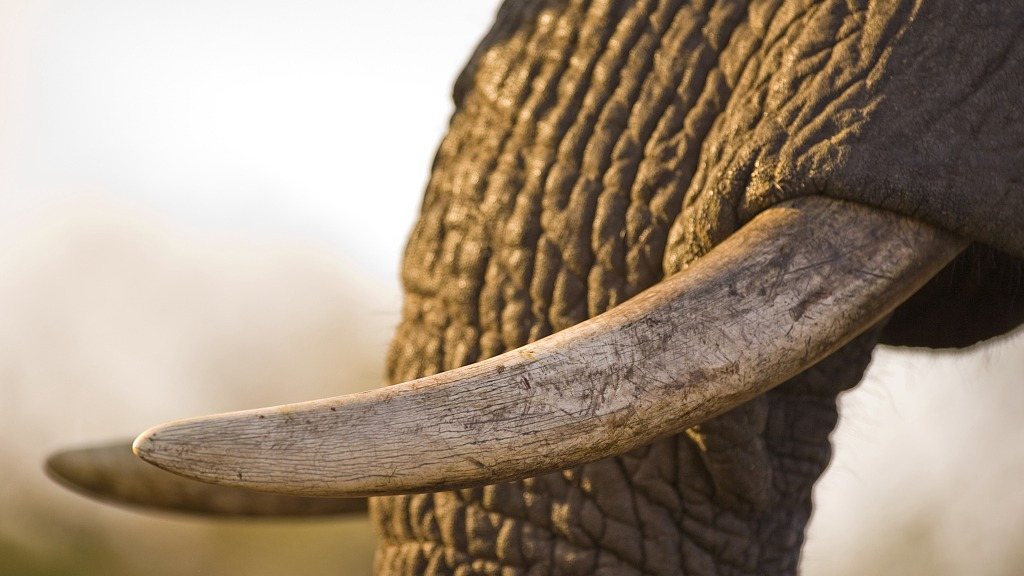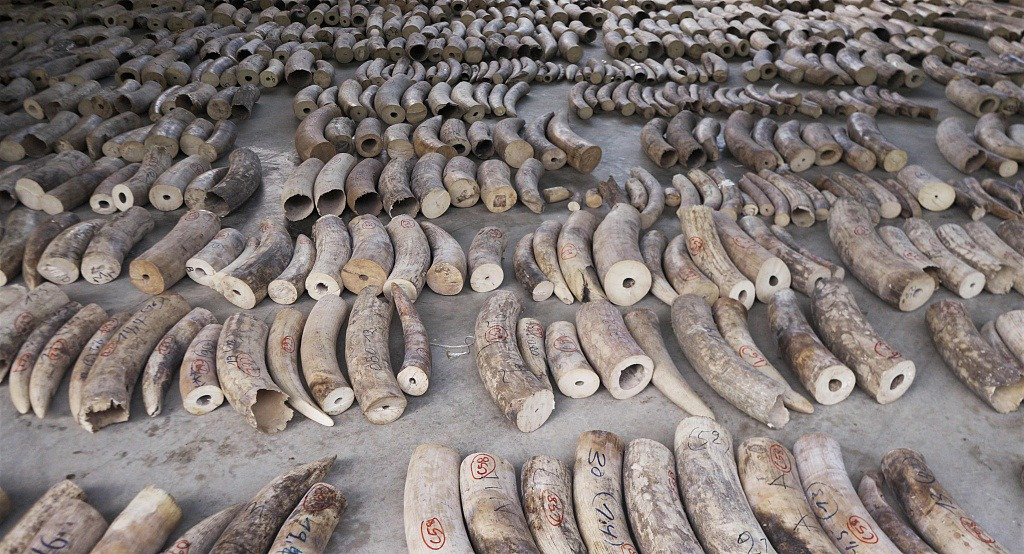

On August 12, World Elephant Day, Singapore announced that it will impose a blanket ban on the domestic sale of elephant ivory and products from September 1, 2021 as the government tightens its campaign against illegal wildlife trade.
The announcement followed two years of consultations with non-government groups, ivory retailers and the public.
Authorities in the city-state made their largest ever seizure of smuggled ivory last month, impounding a haul of nearly nine tons of contraband tusks from an estimated 300 African elephants valued at $12.9 million.
Read more: China's tip-off leads to record ivory seizure in Singapore
The illegal cargo was discovered in a container shipped from the Democratic Republic of the Congo to Vietnam via Singapore. The cargo also included a huge stash of pangolin scales.
Singapore has banned international trade in all forms of elephant ivory products since 1990.

Singapore seized its biggest haul of smuggled elephant ivory coming from Africa and destined for Vietnam in July 2019. /Photo credit to National Parks Board via VCG
Such items could be sold domestically if traders could prove they were imported before that year or acquired prior to the inclusion of the relevant elephant species in an international convention protecting endangered species.
Singapore's National Parks Board banned the sale of elephant ivory and products with effect from September 1, 2021. Violators face a jail term of up to one year and fines on conviction. Traders can donate their ivory stocks to institutions or keep them after the ban takes effect, the board said.
Public consultation by the government last year showed that 99 percent of those who responded were in favor of a total ban.
The global trade in elephant ivory, with rare exceptions, has been outlawed since 1989 after the population of the African giants dropped from millions in the mid-20th century to around 600,000 by the end of the 1980s.
Read about Wildlife activist on China's role in solving illegal wildlife trade.
(Cover image via VCG)
(If you want to contribute and have specific expertise, please contact us at nature@cgtn.com)

Copyright © 2018 CGTN. Beijing ICP prepared NO.16065310-3
Copyright © 2018 CGTN. Beijing ICP prepared NO.16065310-3